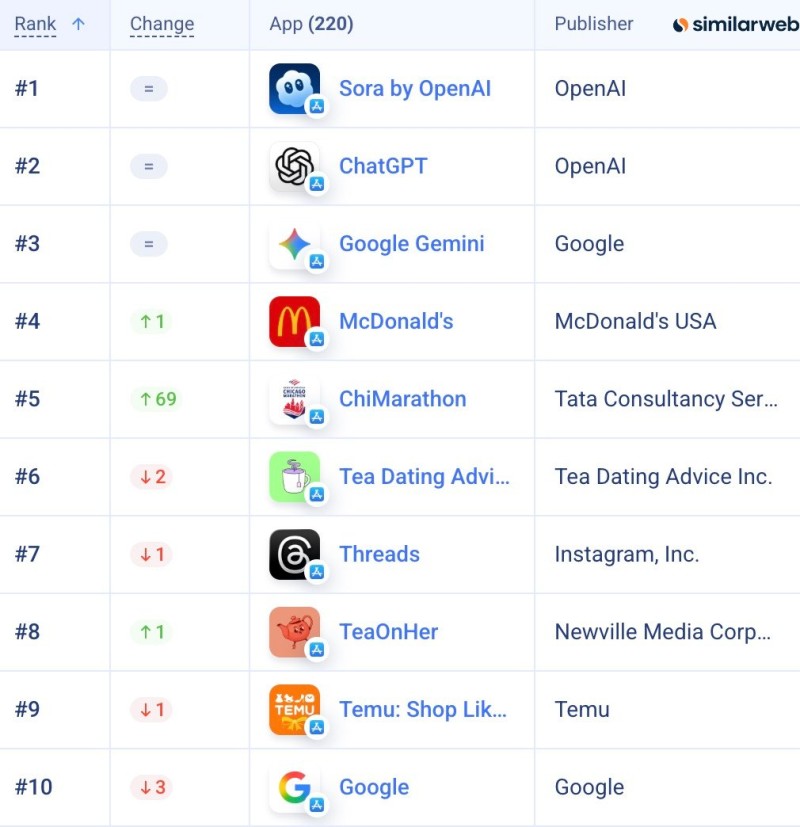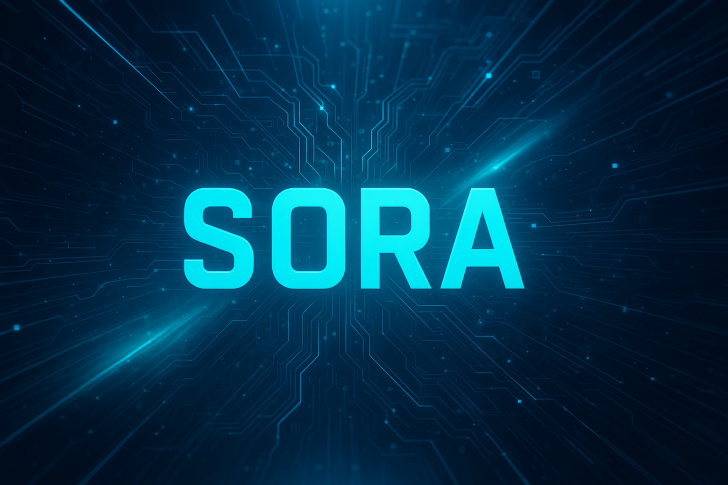OpenAI's newest app, Sora, has rocketed to the top of the US iOS App Store over the past week, surpassing even its own ChatGPT and Google's Gemini. The achievement marks a significant moment in how everyday users are embracing AI-powered tools, treating them not as experimental tech but as essential daily apps.
OpenAI Claims the Top Two Spots
According to data from Similarweb, the current App Store rankings reveal a decisive shift in consumer preferences, with OpenAI now in a commanding position.

The top five apps over the past seven days paint a clear picture:
- 1 Sora (OpenAI)
- 2 ChatGPT (OpenAI)
- 3 Google Gemini (Google)
- 4 McDonald's
- 5 ChiMarathon
These AI applications have climbed above household names and trending newcomers alike. Even major retail and lifestyle platforms such as Temu couldn't crack the top three, underscoring just how quickly AI tools have captured mainstream attention. OpenAI now effectively owns the top tier of consumer AI, creating an ecosystem that reinforces itself as users move between Sora and ChatGPT.
Why Sora's Success Matters
Sora isn't just another chatbot. It brings multimodal capabilities to the table, including AI-generated video, interactive content, and real-time assistance that goes beyond text. Its rapid rise suggests that people aren't just curious about generative AI anymore - they're actively integrating it into their routines. The fact that both Sora and ChatGPT hold the top two spots creates a powerful network effect, encouraging users to stay within OpenAI's growing suite of tools. Meanwhile, Google's Gemini remains competitive but hasn't yet matched OpenAI's consumer momentum. What we're seeing is AI moving from specialized use cases into everyday utility, fundamentally changing how people interact with their phones.
The Broader Shift in Mobile
AI apps dominating the App Store rankings isn't just a tech story - it's a market signal. Just as social media platforms defined the app economy in the 2010s, AI is now reshaping the mobile landscape of the 2020s. For developers, this represents a massive opportunity to build products that tap into this momentum. For investors, these rankings validate the enormous consumer demand driving valuations and funding rounds across the AI sector. The shift is clear: AI tools are becoming infrastructure, not novelties.
 Peter Smith
Peter Smith

 Peter Smith
Peter Smith


